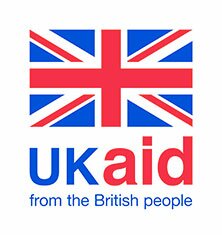Resource centre
Climate shock responsiveness of the Kenya health system
This working paper presents research findings on how country level actors prepare for and respond to climate shocks. In particular, recent drought and flood events in 2019 in northern Kenyan counties are analysed across formal health system sub-components of governance, finance, information systems, medical products, infrastructure and workforce. Authored by Matt Fortnam, Peter Hailey, Emily Mbelenga, Nancy Balfour, Stephen Odhiambo, and Elijah Odundo
Maintains Kenya and Uganda Health and Nutrition Research Protocol: Health System Shock Responsiveness
This Kenya research plan addresses the research question “How can health systems be made climate shock responsive for all?” The research spans the period 2020-2023 and will take place in Turkana, Marsabit and Wajir counties in Kenya. Authored by Matt Fortnam, Peter Hailey, Teddy Atim, Emily Mbelenga, and Nancy Balfour
Seven recommendations for building the climate shock-responsiveness of Kenya’s health system
The formal health system of the ASALs of northern Kenya must respond to surges in demand for health and nutrition services associated with recurrent climate shocks- especially drought and flood events – which are increasing in frequency. This policy brief presents seven recommendations from our working paper on how the health system at county level prepares and responds to climate shocks, from research undertaken in Marsabit, Turkana, and Wajir. These recommendations aim to stimulate national policy dialogue and change to build the climate shock-responsiveness of Kenya’s health system.
This brief was authored by Matt Fortnam, Peter Hailey, and Nancy Balfour
Brief: Towards shock-responsive social protection: lessons from the COVID-19 response in Ethiopia
COVID-19 and national and international measures to curb its spread, may have pushed 15 million more people below the poverty line in Ethiopia. This policy brief draws on key learnings from the Ethiopia country case study, focused on the social protection response to COVID-19 and identifies recommendations to improve the shock responsiveness of the social protection sector. Recommendations in this policy brief focus on improving Disaster Risk Financing, the need to operationalize the management information systems of the flagship social safety net programmes and the consolidation of existing safety net programmes in to a single national programme in the long-term.






